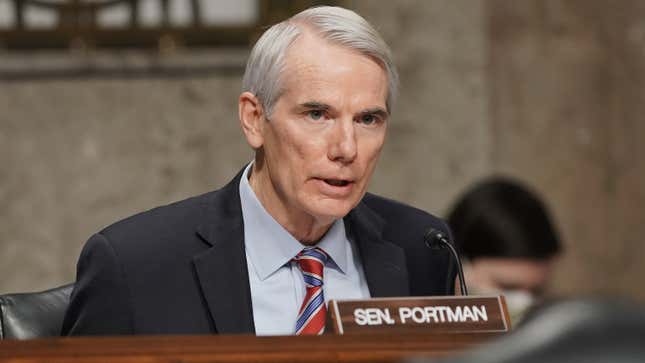
In a letter to the FCC Thursday morning, several senators called for the federal agency to redefine the current minimum speeds that internet service providers can call “high-speed” broadband from 25/3 Mbps to 100/100 Mbps. That’s not only four times higher than the minimum download speed, but senators are also calling for symmetrical download and upload speeds, something that only people with fiber internet typically have.
Sens. Michael Bennet (D-CO), Joe Manchin (D-WV), Angus King (I-ME), and Rob Portman (R-OH) are the lawmakers behind this bipartisan letter, reports The Verge.
“Over the next five years, if current trends hold, data needs are expected to increase annually by at least 25% per year,” the senators wrote.
The FCC adopted the current minimum high-speed broadband definition in 2015, when streaming services like Netflix were still in their early growth stages. But even by January 2014, Netflix had 33.1 million subscribers, when the previous minimum high-speed broadband standard was still 4/1 Mbps. When the FCC finally raised its definition of high-speed broadband, it said the “standard set in 2010 is dated and inadequate,” and also noted that 4 Mbps down, 1 Mbps up was grossly inadequate to “keep pace with today’s advanced, high-quality voice, data, graphics and video offerings.”
Now, with traditional cable networks also offering their own streaming services, hundreds of thousands of people watching streams on Twitch and YouTube everyday, and cloud gaming expanding into more homes, the high-speed broadband minimum standard is once again woefully outdated for the majority of multi-person households. And that’s not even taking into account the millions of parents and children who have been working and attending school from home for the last year due to the covid-19 pandemic, as the senators referenced in their letter.
“The pandemic has reinforced the importance of high-speed broadband and underscored the cost of the persistent digital divide in our country,” wrote the senators. “According to the Federal Communications Commission (FCC), roughly 14.5 million Americans still lack access to broadband, and other studies estimate this number could be as high as 162 million.”
The FCC has also routinely overestimated broadband availability in the U.S. due to how roll-out data is collected. Previously, a flaw in Form 477 allowed ISPs to report entire census blocks as “covered” by their service, even if only one household in that census block had service. Even the FCC acknowledged this last year in regards to gigabit service.
“Commission’s data shows that in the areas where gigabit service is available, only 4% of Americans living in those areas are in fact subscribing to it,” said the agency in its 2020 Broadband Deployment Report.
If the FCC does not implement a new minimum high-speed broadband standard of 100/100 Mbps, then it’s likely the digital divide will only widen further. A new standard would almost certainly face pushback from ISPs, as they have balked at the idea of being forced to roll out broadband to certain areas at a certain minimum speed. Frontier, for instance, wrote the FCC in December 2019 to argue against increasing the minimum broadband deployment speed from 10 Mbps to 20 Mbps.
“We should also insist that new networks supported with federal funds meet this higher standard, with limited exceptions for truly hard-to-reach locations,” wrote the senators. “For years, we have seen billions in taxpayer dollars subsidize network deployments that are outdated as soon as they are complete, lacking in capacity and failing to replace inadequate broadband infrastructure.”